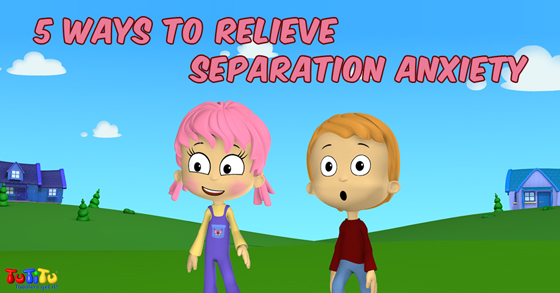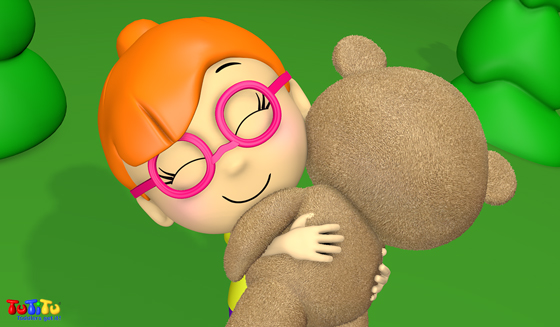Separation anxiety is extremely common in children of various ages. It is something that most parents have seen in their young ones at some point or another, and is of course entirely natural. The reason for this phenomenon, to put it simply, is that children don’t yet have an understanding of the concept of time. They don’t know that when you leave them you will return, and so they think their survival hinges on this separation.
Different children behave differently but most common signs of separation anxiety are crying, throwing a tantrum, clinging to the parent, resisting other caregivers and so on. As emotionally difficult as it can get to experience this (as a parent), remember that it’s in fact a good sign – it means your relationship with the child is healthy and close.
Still, if you do want to try and help your child through it and make it a bit easier for you both and for the entire family, here are a couple of tips that might help kids with seperation anxiety.
#1 Invent a goodbye routine
Like most anything else in child rearing, a strong and consistent routine is helpful and healthy. Maybe make up a special hug or a catchphrase to say when you part. Or even sing a little song together, like one of TuTiTu’s songs for children – it will help your son or daughter get used to the process.
#2 Help them build a good relationship with the other caregiver
If your child loves and gets along with their preschool teacher, it will be easier for them to make the transition every morning. To help build this connection, you can spend time together the three of you, during which you should treat the teacher very warmly and show the child how well you two get along. You can even talk about the caregiver at home in positive terms and hang a picture of them with the child on the fridge – make them a part of your toddler’s life.
#3 Practice separation
If going to kindergarten is proving difficult, try practicing these goodbyes in a shorter format: a playdate in someone else’s house where you leave the child there and return after an hour, an afternoon alone at grandma and grandpa’s house, and so on. Let the child experience your leaving and returning to slowly learn that it’s not so bad after all.
#4 Give the child a comfort object
Another thing that some children find helpful is having an object to carry around that reminds them of the parent (or of home) and comforts them. This can be a favorite toy or blanket, or even an object that belongs to the parent like a scarf. When feeling lonely and scared, the child can take comfort in the object and some parents do find that it helps their children feel better.
#5 Give them an ETA they can understand
When leaving the toddler at the kindergarten or at a friend’s house, tell them exactly when you’re going to be back – and follow through. Don’t make up a time more-or-less but be specific. Also make sure to name a time they can understand. For instance, your children don’t necessarily know what 2 PM means, but they do know what ‘after naptime’ means.
How do you help your child deal with separation anxiety?
Share tips in the comments and send this article to other parents too!


